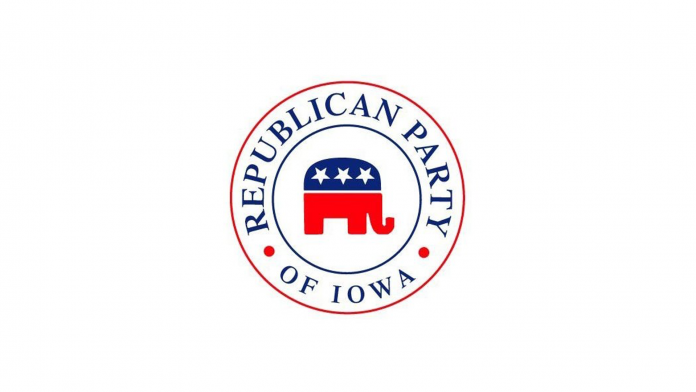Iowa Republicans face a difficult choice as they plan the 2024 caucuses. Same-day registration, mandated by the party constitution, might allow Democrats to interfere with the vote, but new advance registration requirements would be difficult for 1,700 volunteer precinct chairs to enforce. The Organization Committee of the State Central Committee has been wrestling with this problem and weighing these risks.
Some Republicans differ in good faith about what to do about same-day registration. There are legitimate concerns about whichever path the party takes. The discussion is not deeply ideological or philosophical – it is a practical question about which election mechanics will work best.
On one side of the question is the fact that many past Iowa caucuses were uncontested on one side or the other, and there has never been an instance of significant numbers of voters changing their party membership for a day in order to disrupt another party’s results. It is also the case that participating in the caucuses of both parties violates Iowa Code Section 43.91, with penalties specified in Section 39A. Democrats are planning to hold their caucuses on Jan. 15, the same day as Republicans, and their members cannot legally participate in them if they also try to disrupt the Republican caucuses. Some details of Iowa Democrats’ caucus plans are still unclear following their removal from the early caucus and primary schedule, but whatever they decide, voters cannot participate in both caucuses.
Same-day registration was originally adopted in order to encourage participation and to recruit new members to the Republican party. Many who register as Republicans on caucus night go on to become regular Republican voters, volunteers and leaders. Turning away interested voters on caucus night might throw away votes we will need in a general election and party members who could make the difference between winning and losing.
Another argument against changing the rules is that presidential campaigns have been operating for more than a year assuming that registration rules are set. They have spent donor funds and devoted the time of volunteers to recruit voters who are unlikely to register before caucus night. Changing the rules during the campaign would be unfair to these candidates.
Only a state convention can change the RPI constitution, and only a regularly scheduled convention can give a constitutional amendment the consideration and debate it deserves. There is some doubt about the authority to reconvene a convention or call a special convention, which might create further uncertainty about the legitimacy of our rules. A rushed convention held over Zoom with barely a quorum would rightly be criticized as bypassing the grassroots of the party in favor of party insiders deciding important questions. The question of same-day registration did not come up at the last Iowa Republican convention, because delegates did not expect Democrats to abandon Iowa’s first-in-the-nation caucuses.
The State Central Committee is neutral with regard to presidential candidates. It will not adopt rules because it would favor one candidate over another, and even if it did, it isn’t clear at all which candidates would be helped or hurt by a rule change. It is easy to think of reasons why a rule change might help or hurt any of our major candidates, but doing so would be pure speculation. Rather than risk a rule change that might help or hurt some candidates, it seems fairer to keep our rules consistent.
Finally, a rule change would require distributing lists of eligible voters to all 1,700 precincts in the state. Some caucus attendees will be surprised to find that, for one reason or another, they are not on the list. Long-time Republican voters who have participated in caucuses for decades will be turned away. Some precinct chairs will waiver in their enforcement of these rules, putting the legitimacy and integrity of our results in doubt, raising the prospect of litigation and election challenges.
Iowa’s first-in-the-nation status is important to Iowa and to the entire country. Iowa has a special responsibility to vet candidates, and it does this job very well. If our results are not available to the country on caucus night or if the results are in doubt, we will lose our first-in-the-nation status, just as Democrats lost it due to poor execution of their caucuses in 2020.
Against all of these strong arguments for keeping our rules consistent is the theoretical possibility of something that has never happened before – large numbers of Democrats registering as Republicans for a night in order to disrupt our nomination process. I am not dismissing the sincerity or wisdom of Republicans who worry about this possibility. I also worry about it. Weighing the risks, however, I believe that the best course is to stick with the rules we have and reconsider them at the next state convention on May 4, 2024. Until then, the Republican Party of Iowa will do everything it can to plan and organize its caucuses in ways that assure the integrity of the results.
David Barker is a member of the State Central Committee of the Republican Party of Iowa and also serves as its Treasurer.












